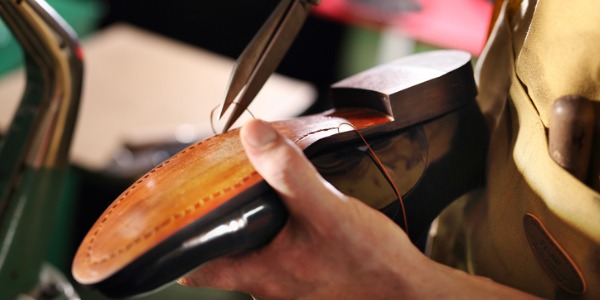What is a Shoemaker?
A shoemaker specializes in crafting and repairing footwear. Shoemakers work with a variety of materials, including leather, suede, fabric, and synthetic materials, to create shoes, boots, sandals, and other types of footwear. They use traditional hand tools and machinery to cut, stitch, shape, and assemble the components of shoes, paying close attention to detail and craftsmanship to produce high-quality products.
In addition to crafting new footwear, shoemakers also provide repair and maintenance services for worn or damaged shoes. This may involve replacing soles, heels, or other parts of the shoe, patching holes or tears, and restoring the appearance and functionality of the footwear. Shoemakers often have specialized knowledge and techniques for working with different types of shoes and materials, allowing them to effectively repair and refurbish a wide range of footwear items.
What does a Shoemaker do?

Duties and Responsibilities
The duties and responsibilities of a shoemaker involve various tasks related to crafting and repairing footwear. Some key responsibilities include:
- Crafting Footwear: Shoemakers design and create custom-made footwear according to customer specifications or standardized designs. They select appropriate materials, such as leather, fabric, or synthetic materials, and use hand tools and machinery to cut, shape, stitch, and assemble the components of shoes, boots, sandals, and other types of footwear.
- Repairing Footwear: Shoemakers provide repair and maintenance services for worn, damaged, or ill-fitting shoes. They assess the condition of the footwear, identify the source of any problems or damage, and determine the most appropriate repair methods and materials. This may involve replacing soles, heels, or other parts of the shoe, patching holes or tears, and refurbishing or restoring the appearance and functionality of the footwear.
- Customer Service: Shoemakers interact with customers to discuss their footwear needs, preferences, and concerns. They provide advice and recommendations on shoe styles, materials, and care techniques, as well as pricing and turnaround times for custom orders or repairs. Shoemakers may also assist customers with fitting and sizing footwear to ensure proper comfort and functionality.
- Maintaining Equipment and Workspace: Shoemakers are responsible for maintaining their tools, machinery, and workspace in good working condition. This includes cleaning and oiling tools, sharpening blades, and organizing materials and supplies. By keeping their equipment and workspace organized and well-maintained, shoemakers can work efficiently and effectively to produce high-quality footwear and provide excellent customer service.
Types of Shoemakers
There are various types of shoemakers, each specializing in different aspects of the craft. Here are some examples:
- Athletic Shoemakers: Athletic shoemakers specialize in designing and manufacturing footwear specifically for athletic activities and sports. They prioritize performance, comfort, and durability to meet the unique demands of athletes.
- Bespoke Shoemakers: Bespoke shoemakers create custom-made shoes with meticulous attention to detail. They work closely with their clients to understand their unique preferences and measurements, ensuring a perfect fit and unparalleled comfort.
- Fashion Shoemakers: Fashion shoemakers design and produce footwear that embodies style, trends, and personal expression. They combine artistry, craftsmanship, and a deep understanding of fashion to create visually stunning and unique shoe designs.
- Industrial Shoemakers: Industrial shoemakers produce shoes for specific industries, such as construction, healthcare, and food service, that require specialized safety features and materials. They focus on functionality, durability, and safety features, ensuring that the shoes meet the specific requirements of the intended work environment.
- Orthopedic Shoemakers: Orthopedic shoemakers specialize in crafting footwear that addresses the specific needs of individuals with foot and lower limb conditions. They create custom-made shoes and orthotics that provide proper support, alignment, and comfort to alleviate pain and improve mobility.
- Ready-to-Wear Shoemakers: Ready-to-wear shoemakers produce high-quality footwear in standard sizes and designs for mass distribution. Their focus is on creating stylish and well-crafted shoes that cater to a wide range of customers.
- Repair Shoemakers: Repair shoemakers specialize in restoring and repairing worn-out or damaged footwear. They possess extensive knowledge of shoe construction, materials, and techniques, allowing them to expertly repair everything from sole replacements to stitching repairs.
What is the workplace of a Shoemaker like?
The workplace of a shoemaker can vary depending on factors such as the scale of their operation, the type of footwear being produced or repaired, and personal preferences. Some shoemakers operate out of traditional brick-and-mortar shops or workshops, where they have dedicated workspaces equipped with tools, machinery, and materials for crafting and repairing footwear. These workshops may be located in urban or suburban areas and range in size from small, independent shops to larger, more specialized facilities.
In addition to standalone workshops, shoemakers may also work in shoe repair shops or retail stores that offer shoe repair services. These establishments may be part of larger retail outlets, department stores, or shopping malls, providing convenient access to customers seeking footwear repair or customization services. Shoemakers in these settings typically work alongside other shoe repair technicians and may interact directly with customers to assess their needs and provide repair recommendations.
Some shoemakers may operate as mobile or freelance practitioners, traveling to clients' homes or businesses to provide on-site shoe repair and customization services. This flexible approach allows shoemakers to reach a broader customer base and provide personalized service tailored to individual preferences and schedules.
Frequently Asked Questions
Shoemaker Related Careers
Shoemakers are also known as:
Cobbler
Cordwainer
Footwear Technician
Shoeworker